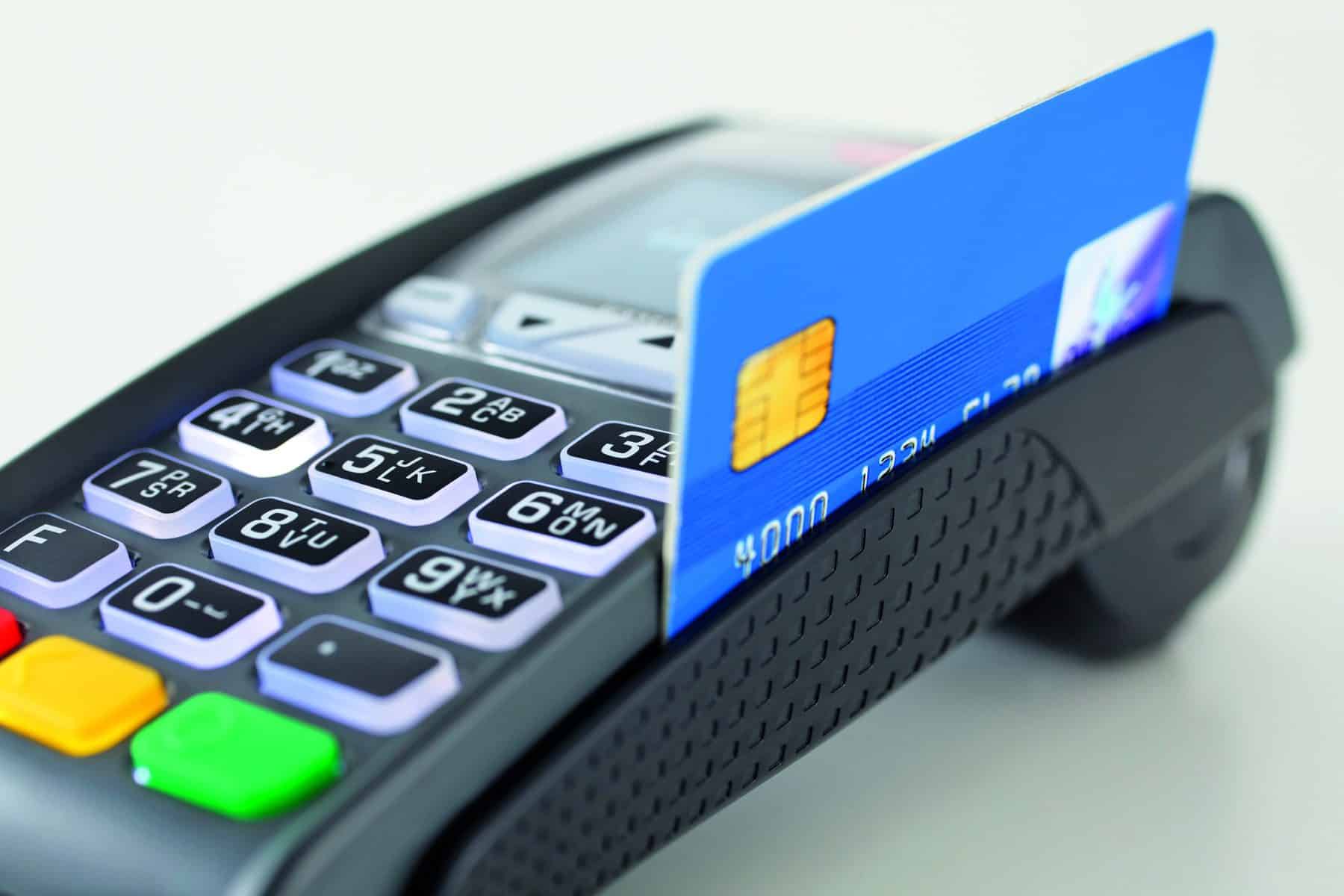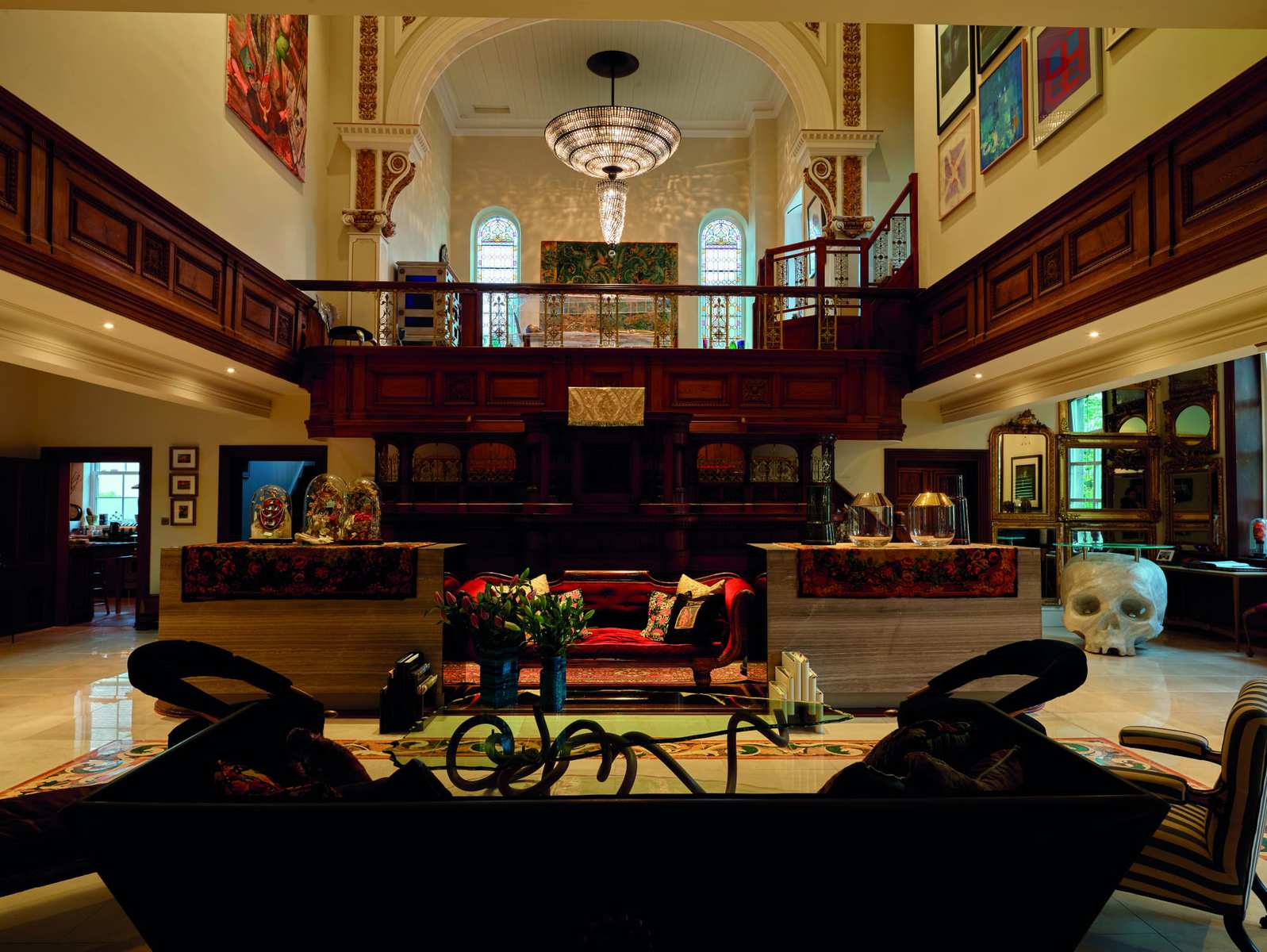
Show me the money
Developments in technology and changes in regulation mean luxury B&B owners should be looking closely at their point of sale systems to ensure they are both compliant with the law and getting the best deal they can.
The EU Payments Services Directive 2 (PSD 2) became UK law on 13 January 2018. The most significant outcome for luxury B&Bs, as businesses that accept card payments, is that from this date any charges incurred processing a card payment can no longer be passed back to the customer. Up until that date reasonable charges incurred by a merchant could be passed back.
As this is no longer the case it means those businesses that used to charge for the cost of card transactions now have to either absorb the extra cost or increase prices to account for it (or often a combination of the two).
Paul Bothamley is partnerships manager at Card Cutters, part of Allied Irish Bank Merchant Services. He tells Luxury Bed & Breakfast: “There has never been a better time to review your merchant services’ charges – and even more so with the peak holiday season now being upon us. Switching providers is now much easier and quicker than it ever was, and there should be no disruption in your ability to process card payments.”
There are three main card payment processing products:
Chip and Pin terminal:
This is by far the most common and familiar way to process card payments in the B&B sector, and there are generally three types:
- The most commonly used terminal is the ‘static’ or ‘desktop’ that sits on your counter or desk, and is connected to either a telephone line or broadband.
- The second terminal type is known as ‘portable’; it has a ‘base unit’ that is connected to either the ‘phone line or broadband in the same way, but unlike the static terminal the hand unit part is separate and can be used to take card payments up to 20/30 metres away from the base unit; it transmits the card and sale data back to the base unit by either ‘bluetooth’ or ‘wifi’, depending which format you opt for. This terminal is most prevalent in areas like the restaurant sector, where the card machine is brought over to the table at the end of the meal for the payment to be taken.
iii. The third kind of terminal is known as ‘mobile’ or ‘GPRS’. Not to be confused with the ‘portable’ above this terminal effectively works in the same way as your mobile ‘phone, and contains a SIM and works via the mobile ‘phone network. It is mainly used for those businesses who take payments outdoors and therefore away from any telephone or broadband connection; some examples include farmers’ markets and outdoor sports and adventure activities. It’s very important to opt for a GPRS terminal with a ‘truly roaming’ and multi network SIM, as most mobile terminals are configured for either dual or even just a single network, meaning in areas where these networks are weak the terminal either won’t work or the service will be unreliable or intermittent.
Virtual Terminal:
Sometimes referred to as ‘MOTO’ (Mail Order Telephone Order), a ‘virtual terminal’ is basically a piece of software included on a web browser in order to take card payments over the ‘phone without the need for a physical terminal. It’s a very good solution if all payments processed are ‘Cardholder Not Present’. However it is not suitable if any payments are taken face to face.
eCommerce:
Also commonly known as ‘online shopping’, eCommerce is a way of paying for goods and services online via a secure ‘payment gateway’. Selected goods are included in the online ‘shopping cart’ or ‘basket’ and payment is made by card at the site ‘checkout’. The purchased goods are then either delivered to the customer or collected or redeemed later. All eCommerce transactions in the UK are further protected by being ‘3D Secure’; this is where you are asked to provide certain characters from your unique password or PIN (this is not the same as the four digit PIN attached to your card). Visa’s 3D secure service is known as ‘Verified by Visa’, and MasterCard’s is ‘MasterCard SecureCode’.
“The payment services market is fast moving and always in flux, and is so on several levels – be this in terms of technological advances such as the rise of contactless payment provision, market changes and expectations, or regulatory demands and enhancements set down by external bodies such as the card issuers (namely Visa and Mastercard), the UK Government and the EU (see ‘Payment Services Directive 2′ above). Keeping abreast of all of these changes and predicting future trends, product development and the direction of travel can be demanding – and also very expensive for the merchant services’ providers.
“Above all else though it’s good to know that the UK card processing market is amongst the most open, most advanced and most competitive in the world, and we currently rank third in the world in terms of cashless payment transactions – just behind Canada and Sweden – with 54% of all payments by volume being made by card in the UK last year.”
Payments processing is becoming less of a challenge for smaller hospitality business owners as the technology improves.
He says: “There is now a plethora of card payment processing solutions that simply weren’t available to the smaller and more medium end of the SME market until relatively – or if they were they were usually expensive, slow, and often unreliable and not always fully data secure. Besides big steps forward in the three main payment solutions already mentioned, there are other, newer solutions that are coming onto the market all the time:
“One example is the so-called ‘micro terminal’ solutions where there is usually a one-off set up cost and then no terminal rental (but tend to attract much higher card transaction charges than conventional terminals). The ‘terminal’ is effectively a card reader and is usually no bigger than a small pin pad.”
Another rapidly growing payment solution is known as ‘mobile ‘phone payment systems’, and is effectively a payment application embedded on a suitably compatible mobile phone. “The best known of these is probably ‘Apple Pay’; others include ‘Android Pay’ and ‘Vodafone Pay’ which allows payment via the customer’s PayPal account… and PayPal itself is due to fully launch its own mobile payments solution ‘One Touch’ in the UK very soon. The main drawback with these mobile payment solutions is that they are in the same category as ‘contactless’ payments, and so individual payments are limited to a maximum of £30 per transactions at the current time,” he says.
His advice to B&Bs looking to upgrade their PoS operation in the coming months is to take the time out of an extremely busy schedule to research the various payment solutions, and then try to compare often differing and, sometimes, a bewildering array of charges. “This can frankly make the whole prospect of setting up or switching a merchant account can seem very unattractive. Many of the card processing providers actually rely on this sort of inertia and a ‘better the devil you know’ attitude… it’s what makes them a lot of money! Despite these understandable perceptions, making an informed decision based on the facts and then switching over to a better deal (and often a much better deal) is a lot easier than you might think. Be wary of having selected rates and prices thrown at you – this market is notorious for not having a consistent pricing model and transparency can be an issue. For example one provider may well appear to save you a few pounds a month on, say, your terminal rental or a fraction of a percentage on a particular card type, but there may be some other charge or charges not mentioned that will more than account for any savings in one or two areas. Also, some providers charge for some things that others do not. Unfortunately you are rarely comparing ‘apples with apples’ in the card processing market.
However, do not let this deter you, for there are still big savings to be made,” he says. He advises: “Ask for a ‘like for like’ charge comparison against your current provider if you have one, and supply a recent merchant statement so this can be done. By doing things this way there is ‘no hiding place’ regarding charges and it will be crystal clear whether or not you can make savings, and if so exactly how much they will be. Don’t be taken in by the charges the merchant company want you to focus on, and instead look at what your overall savings might be,” he concludes.
Fidelity Payment has over 22 years’ experience with providing payment solutions to B&Bs and other businesses in the hospitality industry. It helps reduce rates on card processing and streamline payment operations.
Marketing director Lucy Glickman tells Luxury Bed & Breakfast: “We offer a range of industry proven countertop and portable Verifone and Ingenico card machines. We also offer cost–effective ecommerce solutions for quick and secure online card payments for B&B websites.”
She says Fidelity Payment offers fully integrated software for most management systems and channel managers. “We also offer user-friendly DCC & Taxback services so that international card users can choose to pay in their own currency, rather than the domestic currency of the point of purchase.
“For B&B owners processing payments from overseas guests our clients’ overseas customers will know how much their purchase costs in their home currency, eliminating any concerns over the latest exchange rates and they will receive a receipt breaking down the tax rebate to help them claim tax back.”
DCC enables Fidelity Payment’s B&B clients to benefit from transactions made by international customers by receiving back 1% of all transactions as standard from their total international cardholder turnover, she explains.
“We also offer multi-currency accounts, through our partnership with AIB, so that our clients can process in over 200 currencies with full transparency on competitive foreign exchange rates and margins at the point of purchase,” she adds.
The undeniable and continuing major trend of the last decade has been e-commerce. UK businesses have been reasonably successful in jumping online and developing that channel. However, a high proportion of businesses have stuck with the first payment provider they selected and are paying premium fees for what has become a commodity service. Glickman says: “There is a considerable saving in reviewing these arrangements, especially if you are still with a Paypal or similar turnkey product.”
Payment transaction costs are another hot topic, she says. “When the European Union slashed card interchange rates in 2015/2016, most of the high street retailers didn’t pass on the full benefit to their SME customers. And already in 2017 we’ve seen Visa and MasterCard increase their card scheme fees which almost everyone in the market is passing onto merchants. But unfortunately some of the high street processors are increasing costs by much more than the card scheme fee increases. So it just highlights the need for merchants to constantly monitor their costs and shop around to get the best deal.
We conducted a Poll on how businesses are dealing with the recent PSD2 ban on credit card fees. The majority of respondents (40%) said they will need to absorb the costs rather than say no to credit cards.”
Technological change in payments is always interesting. There’s a lot of change for example taking place in authentication and security led by MasterCard and Visa themselves, she says. “Pretty soon we’ll have more secure replacements for passwords and pin numbers such as fingerprint or facial recognition. Combining this with smartphone technology like Apple Touch will also help speed up online payments and make them more seamless than now. People don’t generally like 3D secure but hopefully this will soon be replaced with something faster and easier.”
Fidelity Payment is competing against some large, established UK brands. But Glickman insists: “We provide the same quality types of solutions as the big guys, just more cheaply and with a better service.”



